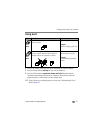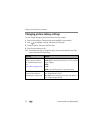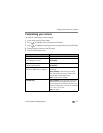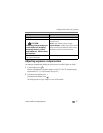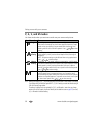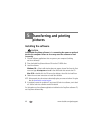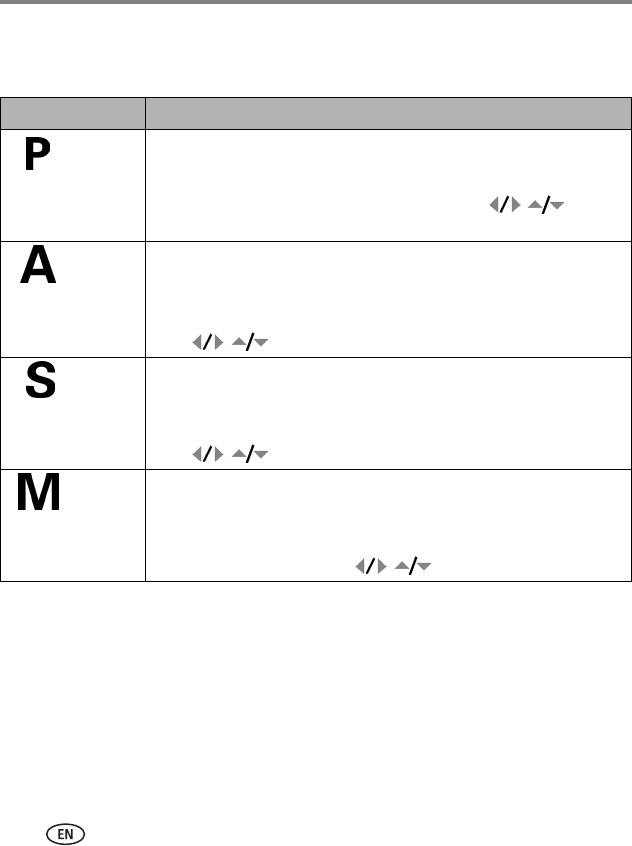
38 www.kodak.com/go/support
Doing more with your camera
P, A, S, and M modes
Use these modes when you want more control over your camera and pictures.
NOTE: Settings you change in P, A, S, or M modes apply only to pictures taken in those modes. For example,
if you change the Color Mode to Sepia while in P, A, S, or M mode, you retain the default setting of
Color for Auto and Scene modes.
The settings, including Flash, are maintained for P, A, S, and M modes—even when you change
modes or turn off the camera. Use Reset to Default (see the table that starts on
page 32) to reset P,
A, S, or M mode to its default setting.
Use this mode For
Program Controlling exposure compensation (how much light enters the camera).
The camera automatically sets the shutter speed and aperture (f-stop)
based on the scene lighting. Program mode offers the ease of auto
shooting with full access to all menu options. Press
to select
settings.
Aperture
Priority
Controlling aperture, exposure compensation, and ISO speed. Aperture
priority mode is primarily used to control depth of field (the range of
sharpness).
NOTE: The aperture setting may be affected when using optical zoom.
Press
to select settings.
Shutter
Priority
Controlling the shutter speed, exposure compensation, and ISO speed.
The camera automatically sets the aperture for proper exposure. Shutter
priority mode is primarily used to prevent blur when your subject is
moving. To prevent camera shake, use a tripod for slow shutter speeds.
Press
to select settings.
Manual The highest level of creative control. You set the aperture, shutter speed,
and ISO speed. Exposure compensation acts as an exposure meter,
recommending the proper combination of aperture and shutter speed to
produce an acceptable exposure. To prevent camera shake, use a tripod
for slow shutter speeds. Press
to select settings.




